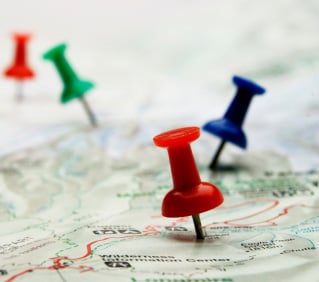 In a few weeks I’ll be taking a cruise to the Caribbean—a cruise that I have spent 9 months planning. Needless to say, I’ve been a little preoccupied making sure everything is in place to ensure a flawless vacation. And as I sorted through all of these details, I couldn’t help but notice the similarities between vacation planning and how we at CMB prepare for a smooth, successful research project. You might be thinking “this is a woman who really needs a vacation.” But hear me out.
In a few weeks I’ll be taking a cruise to the Caribbean—a cruise that I have spent 9 months planning. Needless to say, I’ve been a little preoccupied making sure everything is in place to ensure a flawless vacation. And as I sorted through all of these details, I couldn’t help but notice the similarities between vacation planning and how we at CMB prepare for a smooth, successful research project. You might be thinking “this is a woman who really needs a vacation.” But hear me out.
The first step of vacation planning is to put together a list of possible locations for a trip and select an appropriate timeframe. Planning a successful research study works on the same principles, every project starts with taking the time to define and understand the main decisions that need to be made from the research—we use tools like our Business Decision Worksheet—which directly ties the questionnaire, analysis and reporting to the business decisions, letting us identify and gain consensus on the most pressing decisions, and ensuring the results are actionable.
We also know how critical it is to develop (and stick to) a schedule that aligns with our clients’ needs. One of the first things that we at CMB do at the beginning of each project is put together a schedule outlining each key milestone of the process, all the way up to delivery of the final results. Putting together a detailed schedule helps us align resources and ensure we stay on track to meet our client deadlines. Knowing how much our clients rely on our research makes the scheduling a crucial part of the process and an important key to our success in executing projects.
Once the schedule is set, the project kicks off and the exploratory phase begins. I personally did lots of exploratory research before selecting my specific cruise line, ship, and date. Through this exploratory research, I was able to drill down and identify what aspects were most important in making my decision. Exploratory phases are also crucial for determining what will be most important to measure in the questionnaire and which areas are “nice to haves,” but not necessary to be included for the project.
Exploratory research also helps generate new ideas that may not have been previously considered. Similar to the many resources available for cruise planning (cruise line website, message boards, etc.), exploratory research for a project can span several platforms, including a review of secondary research, conducting in-depth interviews or focus groups, or hosting online discussion boards.
Sometimes the exploratory phase of a project gets less attention/recognition than is deserved because it doesn’t come across as being as “glamorous” as the analysis and insights that will come from the quantitative research. However, all market researchers know that the level of planning can make or break a project. CMB’s focus on planning allows us to try and anticipate what potential issues may come up down the road so that we can troubleshoot effectively and properly set expectations with our clients. Of course just like you can’t predict a rogue wave, there are times when the unexpected happens. When this happens we know we need to remain flexible enough to make course corrections and steer us back to the business decisions that our clients are trying to make.
I know we can only take the analogy so far; when all is said and done, often the only tangible evidence of having been on a vacation are the pictures. While the deliverables we produce for our clients are polished and shiny, they’re hardly the end “goal” of the research. Successful research is useful and used, and that starts well before a questionnaire is designed.
Cara is a Research Manager at CMB. She enjoys spending time with her husband Brett, her dog Nala, and planning her next vacation.

